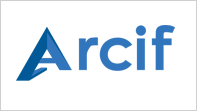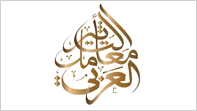After crisis management in educational establishment:Towards a protocol for intervention after a suicide
DOI:
https://doi.org/10.51984/johs.v20i4.2279Keywords:
Management, Crisis, Suicide, Tunisia, Canada, Guidance counsellor, Educational institutionAbstract
The article presents an approach to post-crisis management in educational institutions through the example of post-suicide psychological crisis. That is, what should educational actors, in cooperation with their external partners, do to mitigate the impact of the trauma of losing a member of the educational family? How can we return as soon as possible to the former stability and reduce the negative effects of the crisis on the Learning Act and on the ability to adapt to life's changes?
The article is divided into two parts:
In the first section, I described and evaluated the experience of the counsellor in guidance in Tunisia, in his field work in collaboration with several partners, in escorting pupils with difficulties, especially after a colleague's suicide crisis. Explain the legal framework provided by the Ministry of education in Tunisia for such interventions. However, these attempts have remained tentative and lack a strategy that would elevate it to crisis management. Therefore, I see the need to develop them by analyzing the experiences of countries with better quality educational systems, such as Canada.
In a second section, she presented a structuring of the Quebec Suicide Prevention Association's Canadian approach to post-crisis management. By identifying the actors, and the goals set in each situation: from the declaration of suicide to the reactions of loss or mourning. This approach is not to be copied, but to be used to devise, test and develop crisis management schemes in the educational systems of our Arab countries in order to protect them from shocks effects that disrupt their educational function.
Conclusions and recommendations were formulated aimed at deepening research into educational crisis management.
Downloads
Downloads
Published
Issue
Section
License
Journal of Humanities Policy on Intellectual Property and Plagiarism
1. Commitment to Intellectual Property and Ethics
The Journal of Humanities (JOHS) is fully committed to respecting intellectual property rights and aims to protect the originality and authentic work of authors who submit their manuscripts for publication. The journal takes a firm stand against articles that contain any form of plagiarism and emphasizes the need for all researchers to adhere to the highest ethical standards in scientific research.
2. Anti-Plagiarism Policy
The journal considers plagiarism a serious violation of academic ethics. Therefore, authors must ensure that their work is original and not plagiarized, and that any use of external sources is properly cited and documented according to correct academic standards.
-
Actions Taken: In the event that any plagiarism or academic theft is discovered in a submitted article, the editorial board will contact the author to request a formal explanation within a maximum period of two weeks from the date of notification.
-
Investigation and Decision: After receiving the explanation, the article will be referred to the journal's specialized committees, which will investigate the matter and take the necessary measures, which may include the permanent rejection of the article and the imposition of disciplinary actions.
3. Publication License and Author Rights
The journal adopts the Creative Commons license type Attribution-NonCommercial-NoDerivs 4.0 International (CC BY-NC-ND 4.0), which allows for the following:
-
Attribution: Users are entitled to cite the content published in the journal and use it in their work, provided that the original source and author are clearly credited.
-
Non-Commercial: The published content may not be used for any commercial purpose.
-
NoDerivs: It is not permitted to make any modifications, distortions, or to build derivative works from the published content.
Under this license, authors are required to complete an exclusive license agreement for the journal. Authors retain the rights to their research data and may reuse and share their work for scientific purposes with proper citation.







